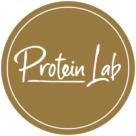When it comes to fitness and exercise, the focus often lands on workouts, routines, and performance. However, one critical component that should never be overlooked is recovery. The muscles we work hard to build require specific nutrients to heal and grow stronger, and protein is at the top of that list. If you’re on a fitness journey, understanding the role of protein in muscle repair and recovery is crucial.
Studies have shown that muscle recovery can significantly affect performance and the ability to maintain an active lifestyle. In this blog, we will explore why protein is essential for muscle repair and recovery, the types of protein sources available, and how to effectively integrate them into your post-workout regimen.
The Science Behind Muscle Repair
Muscle repair and recovery occur primarily after physical activity, particularly after resistance training or intense workouts. During these exercises, tiny tears occur in muscle fibers. This process, known as muscle trauma, is a natural part of strength building.
Here’s how the muscle recovery process works:
-
Microtrauma: During intense workouts, your muscles experience microtrauma. This damage is necessary for muscle growth, but it also leads to soreness and fatigue.
-
Inflammation Response: The body responds to muscle damage by sending immune cells to the affected areas, leading to inflammation. This inflammation is a vital part of the healing process as it signals the body to start repairing the damage.
-
Repair and Growth: Protein plays a crucial role in repairing muscle fibers. Amino acids, the building blocks of protein, are used to rebuild and strengthen damaged muscle tissue. This repair process leads to muscle hypertrophy—an increase in muscle size and strength.
-
Recovery: After the repair is complete, the muscles not only return to their previous state but also become stronger and more resilient. This process is essential for athletes and fitness enthusiasts who want to enhance their performance over time.
The Role of Protein in Muscle Repair
Protein is essential for muscle repair for several reasons:
-
Amino Acid Supply: Proteins are made up of amino acids, which are essential for muscle repair. When you consume protein, your body breaks it down into these amino acids, which are then used to repair and rebuild muscle tissue.
-
Promoting Muscle Synthesis: Consuming adequate protein after a workout stimulates muscle protein synthesis (MPS), the process of building new muscle proteins. This process is essential for recovery and muscle growth. Studies suggest that the optimal window for consuming protein is within 30 minutes to two hours post-exercise.
-
Reducing Muscle Soreness: Protein intake can also help reduce muscle soreness after intense workouts. A study published in the American Journal of Clinical Nutrition found that participants who consumed protein supplements experienced less muscle soreness and improved recovery compared to those who did not.
-
Supporting Overall Recovery: In addition to muscle repair, protein plays a role in various bodily functions that contribute to overall recovery, such as hormone regulation and immune function.
Types of Protein Sources
Choosing the right protein source is crucial for maximizing muscle repair and recovery. Here are some common protein sources, both animal-based and plant-based, that can support your recovery needs:
-
Animal-Based Proteins:
- Chicken Breast: A staple among fitness enthusiasts, chicken is high in protein and low in fat, making it an excellent post-workout option.
- Fish: Salmon and tuna are rich in omega-3 fatty acids, which have anti-inflammatory properties, aiding in recovery.
- Eggs: Eggs are a complete protein source, meaning they contain all essential amino acids. They are also versatile and easy to incorporate into meals.
- Dairy Products: Greek yogurt and cottage cheese are high in protein and calcium, which is important for muscle function and recovery.
-
Plant-Based Proteins:
- Legumes: Beans and lentils are rich in protein and fiber, making them a great option for vegetarians and vegans.
- Quinoa: This grain is a complete protein source, providing all essential amino acids while being gluten-free.
- Nuts and Seeds: Almonds, chia seeds, and pumpkin seeds offer healthy fats and protein, perfect for snacking or adding to smoothies.
- Soy Products: Tofu and tempeh are excellent plant-based protein sources that are high in essential amino acids.
-
Protein Supplements:
- Whey Protein: Derived from milk, whey protein is a fast-digesting protein ideal for post-workout recovery.
- Casein Protein: Also derived from milk, casein is slow-digesting and is beneficial for providing a steady release of amino acids.
- Plant-Based Protein Powders: These powders, made from sources like pea, brown rice, or hemp protein, are excellent options for those who prefer vegan or vegetarian diets.
How to Effectively Incorporate Protein into Your Routine
Incorporating protein into your post-workout routine doesn’t have to be complicated. Here are some practical tips:
-
Timing Matters: Aim to consume a source of protein within 30 minutes to two hours after your workout. This is often referred to as the “anabolic window,” where your muscles are primed for repair and growth.
-
Combine with Carbohydrates: Pairing protein with carbohydrates can enhance recovery. Carbohydrates help replenish glycogen stores, while protein aids in muscle repair. Consider a protein shake with a banana or a chicken sandwich on whole-grain bread.
-
Meal Prepping: Preparing meals in advance ensures you have healthy, protein-rich options ready to go after workouts. Cooked chicken, boiled eggs, or pre-made protein smoothies can be convenient choices.
-
Snack Smart: If you’re on the go, opt for high-protein snacks like Greek yogurt, protein bars, or nut butter with whole-grain crackers.
-
Stay Hydrated: Don’t forget that hydration is also crucial for recovery. Proper hydration supports nutrient transport and helps prevent muscle cramps.
Conclusion
Protein is an essential nutrient that plays a pivotal role in muscle repair and recovery. By understanding how protein functions in the body and incorporating adequate protein sources into your diet, you can enhance your recovery process, reduce muscle soreness, and promote muscle growth.
Whether you’re an athlete or a fitness enthusiast, recognizing the importance of protein is key to reaching your fitness goals. Integrating high-quality protein from both animal and plant sources, along with protein supplements when needed, will not only support muscle recovery but also contribute to your overall health.
For those looking to simplify their post-workout nutrition, businesses like ProteinLab offer delicious protein shakes that cater to various dietary preferences, ensuring that you can easily meet your protein needs while enjoying the process!

